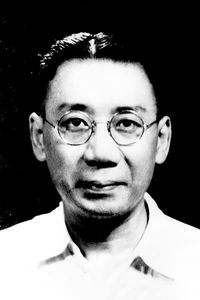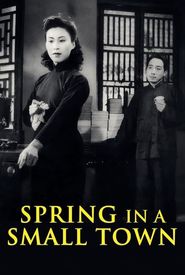Fei Mu, a cinematic visionary and pioneer of the silver screen, hailed from the vibrant metropolis of Shanghai, China, and is universally acknowledged as one of the most influential and groundbreaking filmmakers of his time, prior to the profound and transformative communist revolution that reshaped the course of Chinese history in 1949.
Fei's innovative artistic approach and flair for crafting captivating costume dramas first garnered him widespread recognition at a remarkably early stage in his career, with his inaugural film production, the 1933 cinematic masterpiece "Night in the City", brought to life by the esteemed Lianhua Film Company, receiving both widespread critical acclaim and enthusiastic popular approval.
Fei Mu, a renowned Chinese filmmaker, further cemented his status as a prominent figure in the industry during the 1930s by collaborating with Lianhua Film Company.
He went on to create a plethora of remarkable films, including the critically acclaimed "Blood on Wolf Mountain" in 1936, which showcased his exceptional storytelling abilities.
Additionally, his 1935 film "Song of China" garnered widespread recognition, highlighting Fei Mu's mastery of cinematic storytelling and his ability to captivate audiences.
Throughout this period, Fei Mu's dedication to his craft and his innovative approach to filmmaking earned him a reputation as a major talent in the industry, leaving a lasting impact on Chinese cinema.
Fei Mu's enduring reputation as a pioneering figure in Chinese cinema was solidified with the release of his 1948 cinematic masterpiece, Spring in a Small Town, a poignant and thought-provoking portrayal of a complex love triangle set against the backdrop of post-war China. This seminal work would go on to be widely acclaimed and revered, earning the distinction of being hailed as the greatest Chinese film of all time by the Hong Kong Film Critics Association in 2005.
In the same calendar year, Fei, a pioneering figure in the realm of filmmaking, took on the helm to direct China's inaugural colour film, a groundbreaking cinematic endeavour that seamlessly integrated the traditional and iconic art form of Beijing Opera with the star power of the renowned Mei Lanfang.
After the communist revolution in China in 1949, Fei Mu, a renowned filmmaker, joined a large exodus of artists, intellectuals, and creatives who sought refuge in Hong Kong, a former British colony. This mass migration was prompted by the tumultuous political climate that followed the establishment of the People's Republic of China under communist rule.
Fei Mu's remarkable body of work and lasting impact on the cinematic world gradually receded into the background following his untimely passing in Hong Kong during the year 1951.
As the years went by, a significant portion of his filmography was relegated to obscurity, with many of his cinematic creations being either forgotten or willfully disregarded by the authorities on the Mainland.
This neglect was largely attributed to the fact that his work was deemed incompatible with the prevailing ideological climate of the time, with leftist critics vociferously dismissing his films as embodying rightist values and sentiments.
The passage of time played a crucial role in the rediscovery of Fei Mu's cinematic masterpieces, as it wasn't until the 1980s that the China Film Archive reopened its doors following a prolonged period of dormancy during the tumultuous Cultural Revolution.
This momentous occasion marked a turning point in the recognition of Fei Mu's work, as a newly restored print of Spring in a Small Town, crafted from the original negative by the China Film Archive, made a significant impact on a new generation of film enthusiasts.















